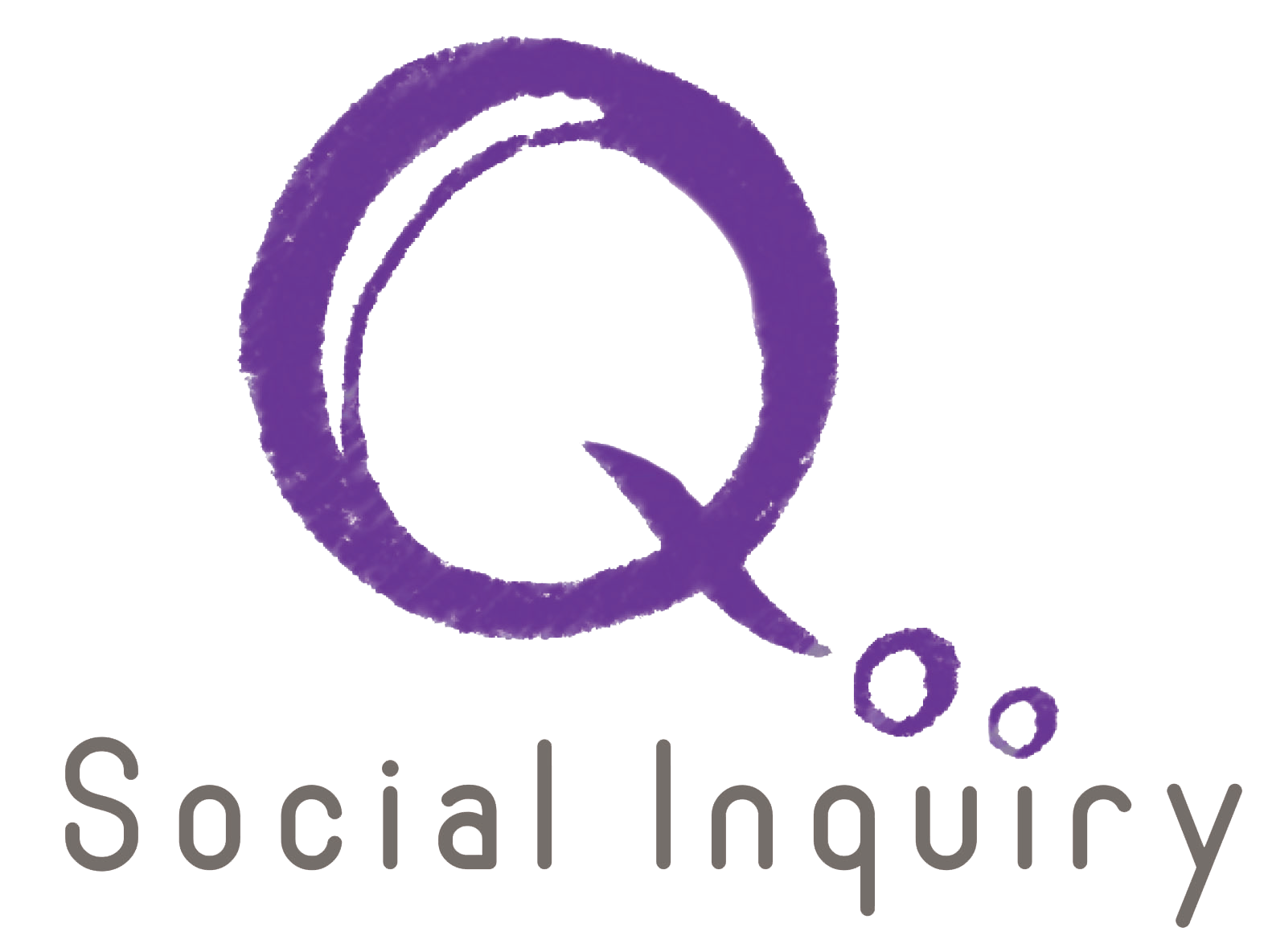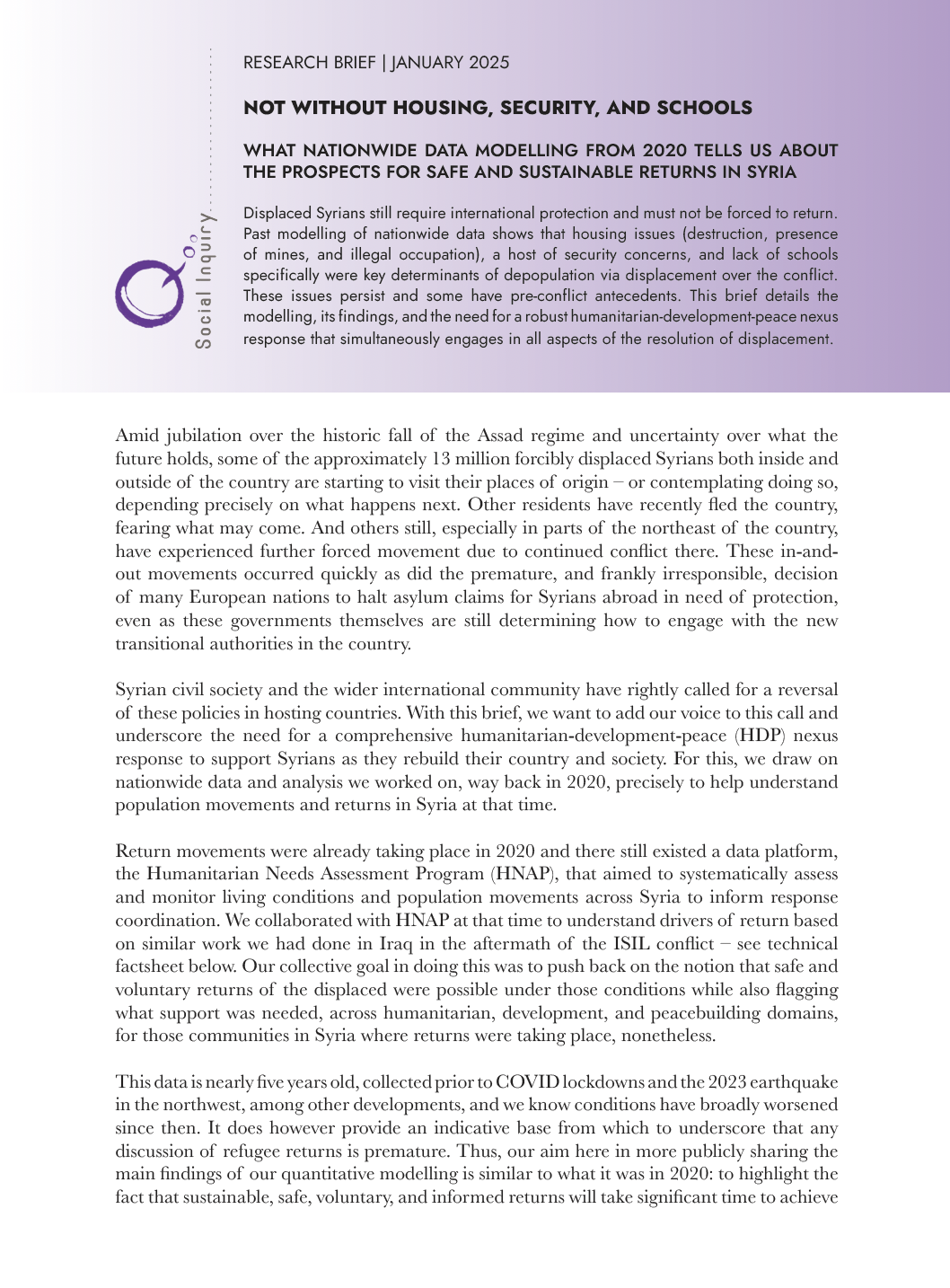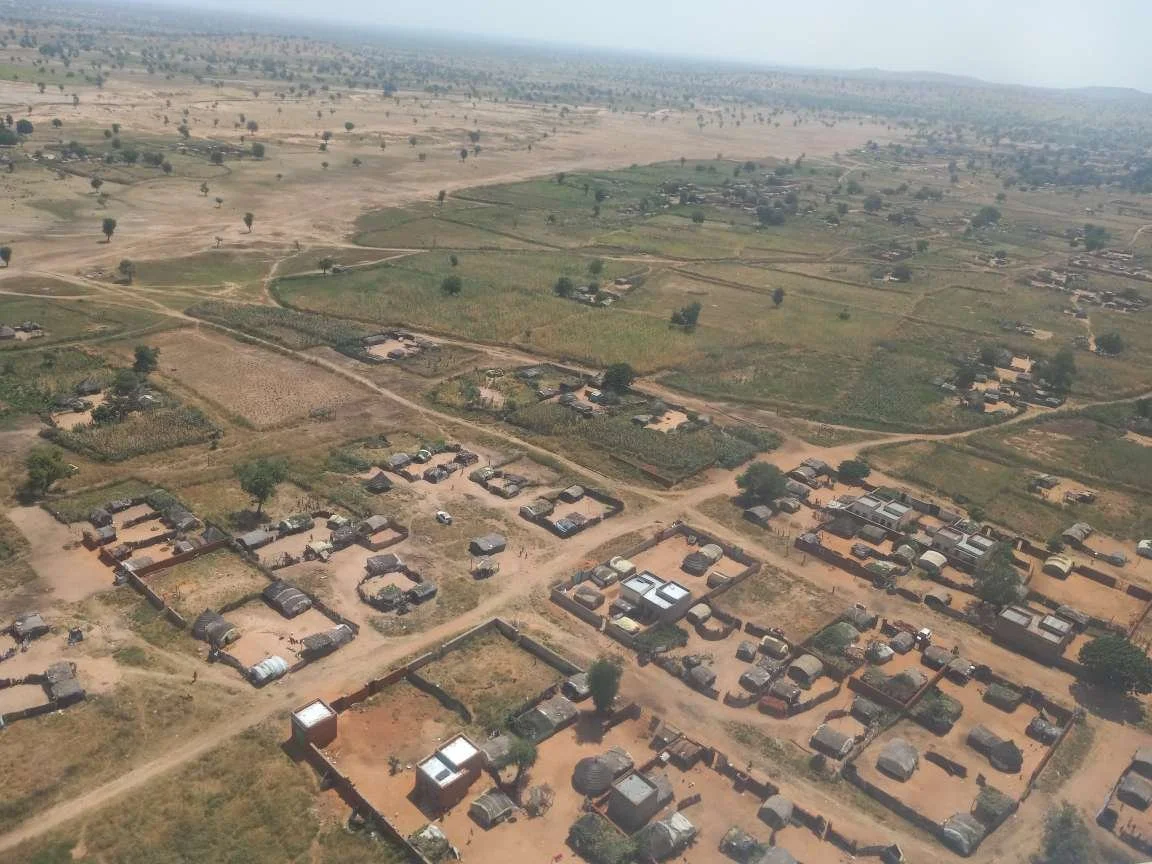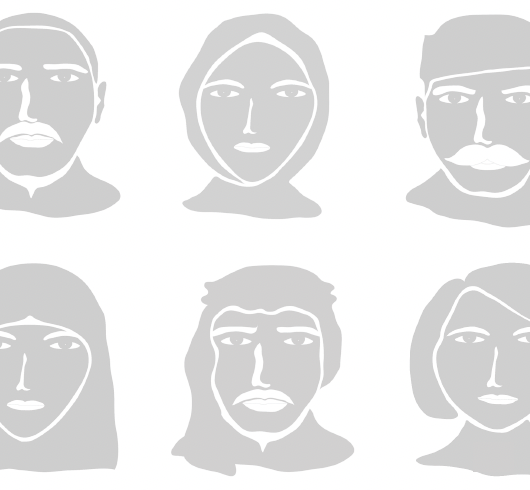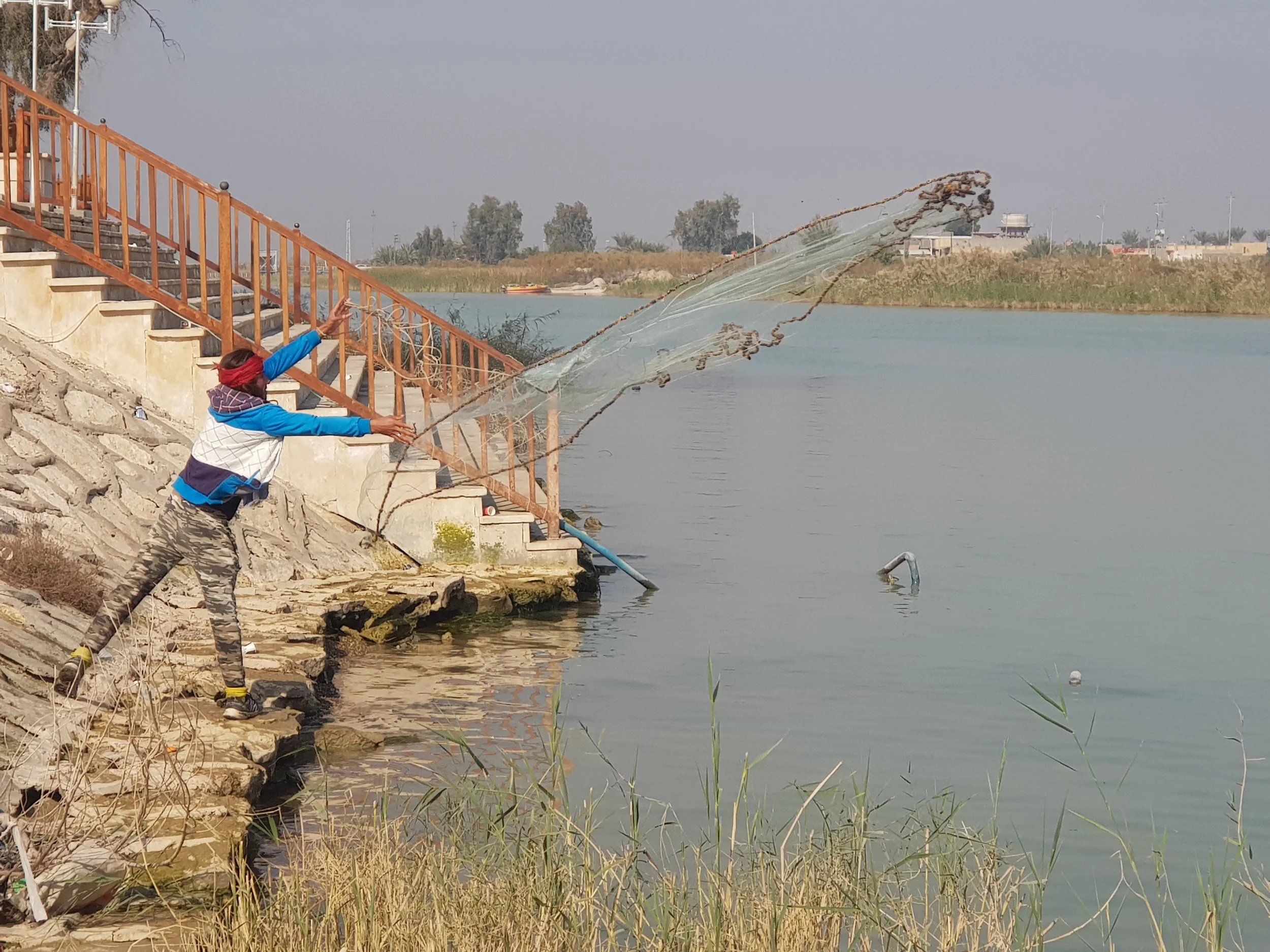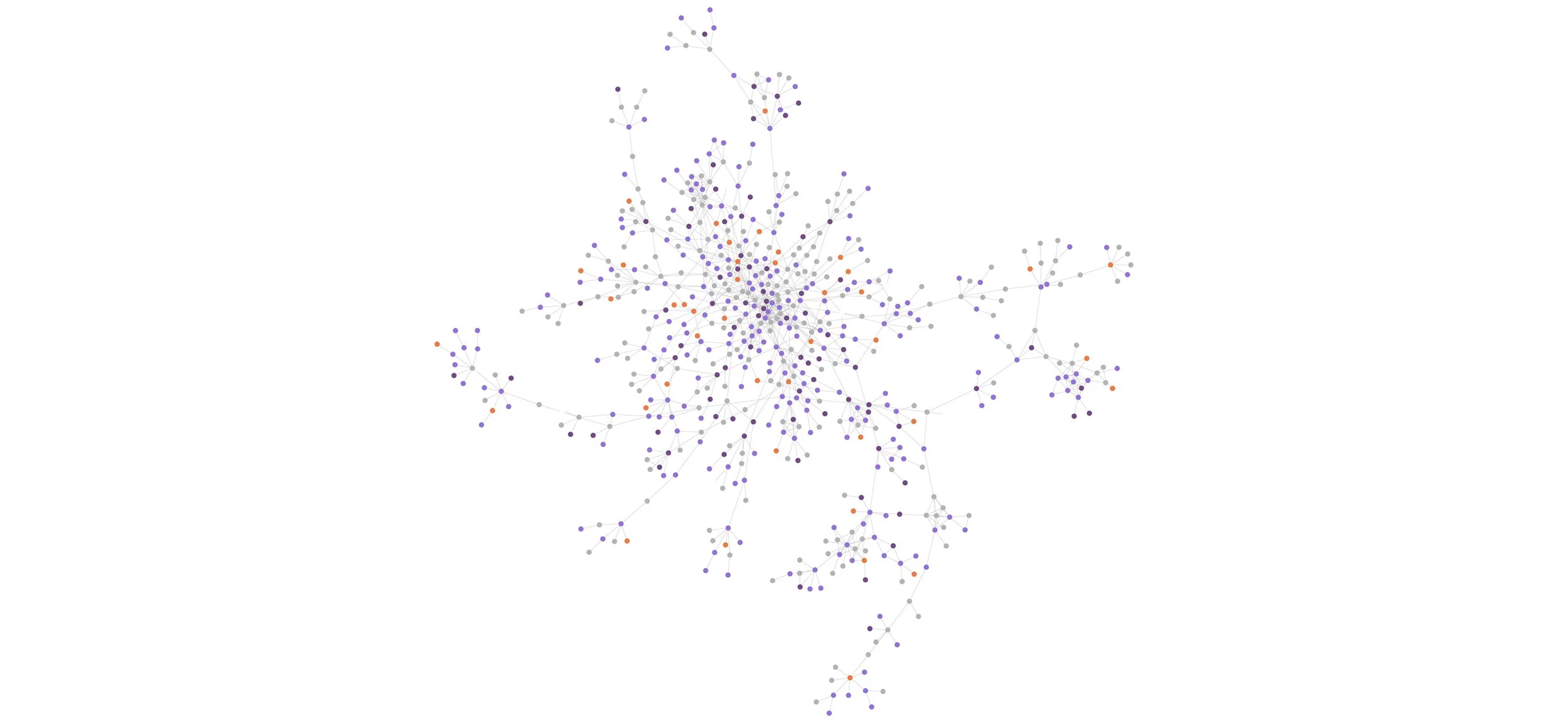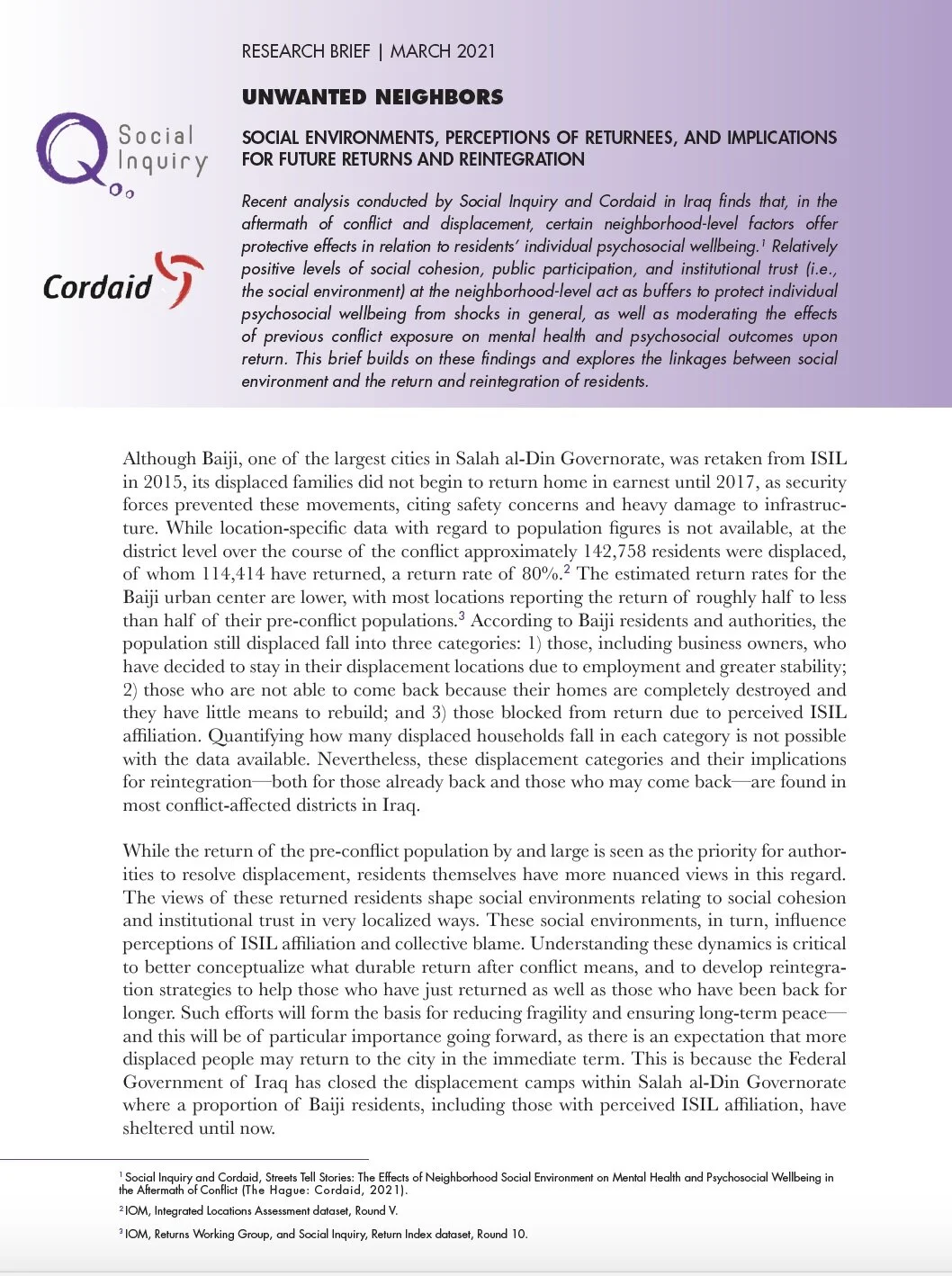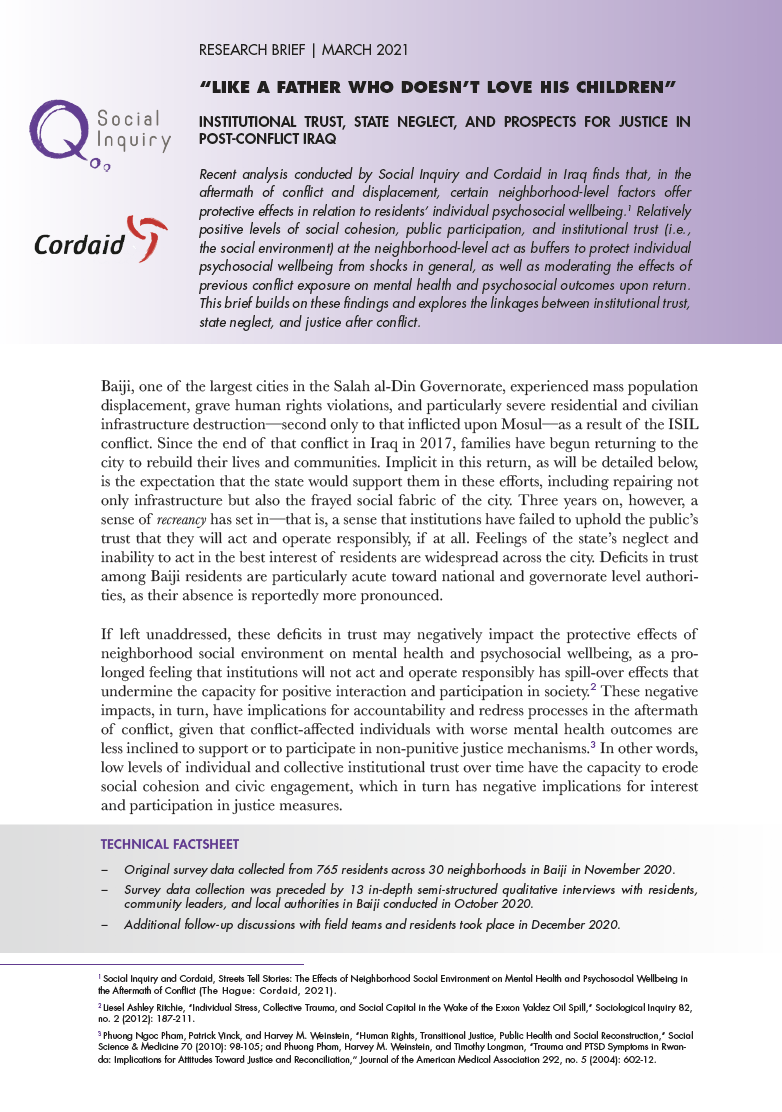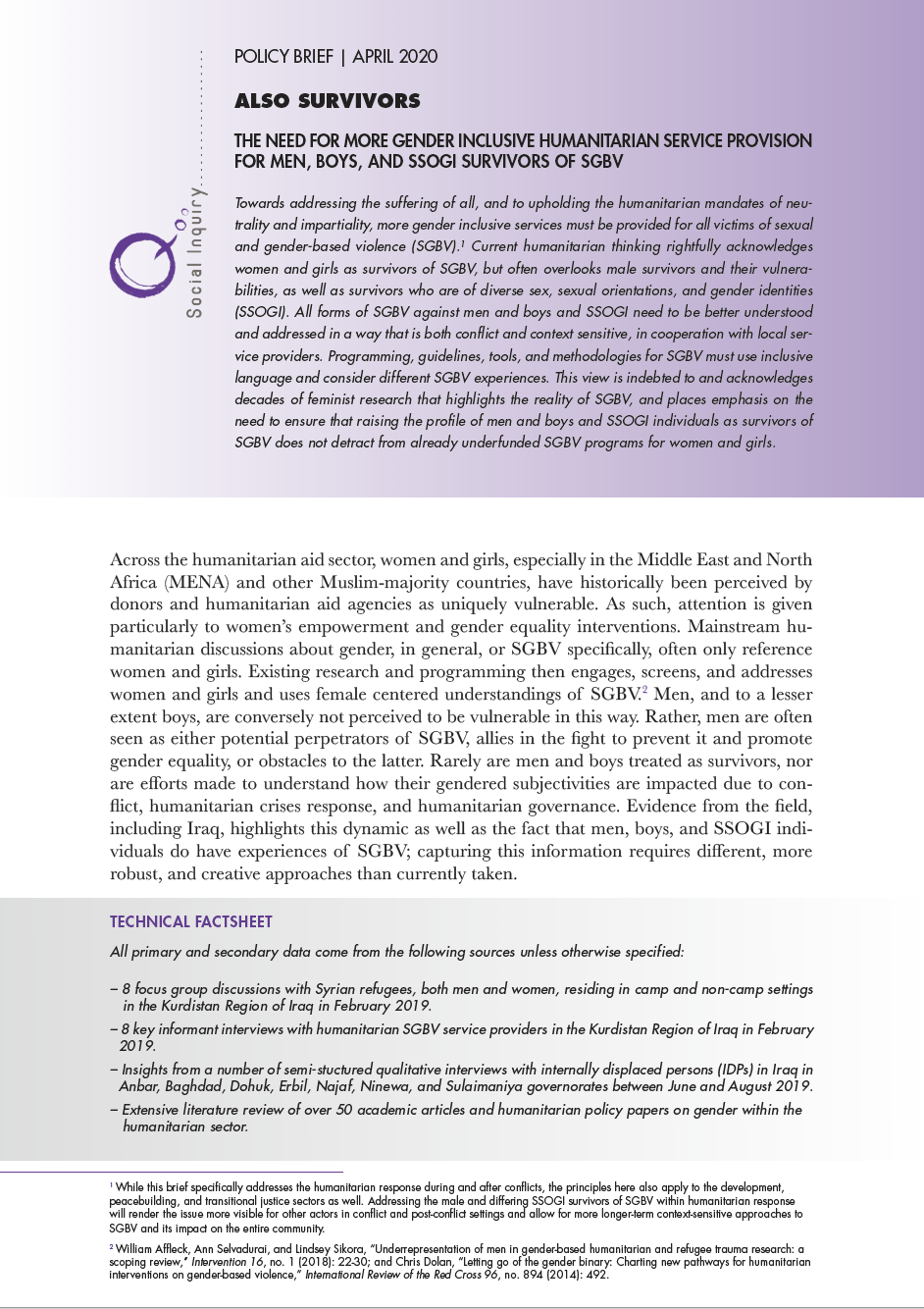This brief revisits (publicly for the first time) nationwide data and modelling conducted in 2020 on living conditions in Syria that allowed people to return and/or remain where they resided. It provides greater context for why discussion of refugee returns to the country are premature and what response would be needed for them to eventually occur in a safe and sustainable manner, for those who wish to come back.
Read MoreRegardless of the difficult circumstances people may find themselves in, including amid protracted crisis and displacement, they seek not just to live but to do so in ways they believe have meaning and value. This pursuit of wellbeing in such settings is complex and multi-faceted and often at odds with humanitarian intervention in place to address affected communities’ needs. The context of Northeast Syria provides a critical window into these dynamics, their impacts on affected communities, and potential ways forward in better addressing wellbeing not only within protracted crises but in de facto states as well.
Read MoreThis series of research on areas of limited and no returns in Iraq seeks to uncover barriers to durably resolving the displacement of affected people and to examine potential ways forward in unlocking those barriers. Analysis centers on the perspectives and demands of affected population groups as well as on how local, national, and regional stakeholders’ interests impact solutions to displacement with an aim to contribute to improving the political dialogue in the country on how to provide voluntary and informed choice of residence to people who are experiencing long-term displacement.
Read MoreIraq has witnessed the return of 4.9 million internally displaced persons (IDPs) to their places of origin in the aftermath of the ISIL conflict. While the movement home is the first step toward reintegration, it is not necessarily an indication of its longer-term sustainability. The Reimagining Reintegration project updates and evaluates the extent to which returnees have (re)gained their rights upon return. This includes understanding the level to which returnees perceive the underlying sources of conflict, grievance, and initial displacement — as well as their consequences — are being addressed.
Read MoreThe rural districts in the north-center and south of Iraq provide a useful entry point to analyze the decline of the agriculture sector due to conflict, economic, and environmental factors in the country. Utilizing recent microdata, this brief seeks to describe this phenomenon in more detail and the impacts and implications of this recession on rural communities. This then lays the basis to articulate key considerations, rooted in the local and national dynamics found in rural Iraq, to transition to a more sustainable agriculture sector.
Read MoreIt is estimated that over one million internally displaced persons (IDPs) have returned to their places of origin across Sudan since 2003. Despite this, little is known about the conditions in which these returnees are living, making it difficult to understand why IDPs return to some areas and not others. This report provides the first ever means of quantitatively measuring the severity of physical and social living conditions in Sudan in the locations to which IDPs are returning, correlating data for food security, housing, safety and security, basic services, and social cohesion and conflict resolution.
Read MoreThis is a cross-sectional profiling study of three southern governorates in Iraq detailing population demographics, housing, access to services, socio-economic situation, agriculture, migration, wellbeing, governance, security, and social cohesion. It provides a demographically representative picture of households and individuals for each of the 18 districts in Basra, Thi-Qar, and Missan governorates, with further representative disaggregation by urban and rural households.
Read MoreHow do communities who have experienced multiple cycles of violence view their multi-layered and interconnected grievances and how to resolve them? How can restorative justice and transitional justice intersect and bolster each other in such a setting? This in-depth qualitative study seeks to explore these questions among residents and leaders of understudied ISIS conflict-affected areas of central Iraq.
Read MoreRural communities in the south of Iraq are some of the most fragile in the country. These in-depth qualitative studies explore conflict causes, drivers and triggers related to access to (natural) resources, (lack of) livelihood opportunities and climate change in rural areas of Basra and Thi-Qar governorates to provide a basis for ensuring a context- and conflict-sensitive approach for resilience building interventions among vulnerable communities therein.
Read MoreDesigned as a social network analysis to more systematically and robustly understand return decision-making among the internally displaced, this study explores the effects perceptions and social networks have on the resolution of displacement over time among Christian and Yezidi displaced populations from Ninewa Governorate residing in the Kurdistan Region of Iraq.
Read MoreForced migration from rural areas due to environmental degradation is increasingly felt in the southern governorates of Iraq and surrounding cities, including Basra, are struggling to absorb the increasing influx of population, further magnifying the social fragility of urban locations. This study uncovers and explores the interlinkages between climate-induced migration, informal urbanization and social fragility in Basra city and identifies the particular issues facing high-migration parts of the city that hinder migrants’ ability to sustainably and peacefully integrate in an already fragile urban setting while also highlighting issues that affect all residents.
Read MoreThis brief explores the ways in which residents’ perceptions of the returns process for the displaced influence neighborhood dynamics and views on ISIL affiliation and blame.
Read MoreIn exploring the linkages between institutional trust, state neglect, and justice after conflict, this brief details the ways in which low confidence in state response can degrade social cohesion and civic engagement, negatively impacting psychosocial wellbeing over time and increasing apathy toward change processes, including those linked to accountability and redress.
Read MoreDesigned as a social network analysis to more systematically and robustly understand return decision-making among the internally displaced, this study explores the effects perceptions and. social networks have on the resolution of displacement over time among Christian and Yezidi displaced populations from Ninewa Governorate residing in the Kurdistan Region of Iraq.
Read MoreDevelopment of an indicators framework, specifically for ethno-religiously diverse communities, to measure social cohesion, stabilization, and conflict between and within communities and between communities and the state. Piloted in northern Ninewa Governorate, the quantitative survey is run over multiple rounds.
Read MoreWhile movement home is a first step toward reintegration for the internally displaced, it is not necessarily an indication of the longer-term sustainability of return per se. This report sought to propose a base for starting to categorise obstacles to reintegration and the ways in which to better capture progress toward this goal as a foundation for reducing overall fragility and creating environments that enable people to flourish in peace.
Read MoreWhat enables people displaced by conflict to return home, and live in peace and how do mental health and social cohesion factor into this process? This study seeks to disentangle these relationships by shedding light on what individual- and community-level factors impact the psychosocial wellbeing of conflict-affected people upon their return home and the implications of this for durable reintegration and peace.
Read MoreWhat does belonging and acceptance look like in cities? This is a critical question to unpack as approximately 1.4 million Iraqis remain displaced in the country as a result of the ISIL conflict, mostly in urban areas and many for more than five years already, indicating that they are either in protracted displacement, moving toward local integration, or some combination thereof. The Cities as Home research project is an innovative in-depth mixed methods examination of the individual and place factors that help or hinder the pathways for their integration into host communities.
Read MoreAs return movements (voluntary or not) continue in Syria, in what conditions do they take place and what is realistically possible for people to achieve in terms of durable solutions? This report, through quantitative analysis and modeling, seeks to answer these questions by uncovering the extent to which locations are able to offer sustainable living conditions that allow people to stay, either through returns or having never displaced.
Read MoreExamination of the ways in which men, boys, and individuals who are of diverse sex, sexual orientations, and gender identities (SSOGI) experience sexual and gender-based violence (SGBV) in conflict and post-conflict settings and the means by which to establish more inclusive humanitarian service provision that addresses their needs without undercutting dedicated support to women and girl survivors.
Read More